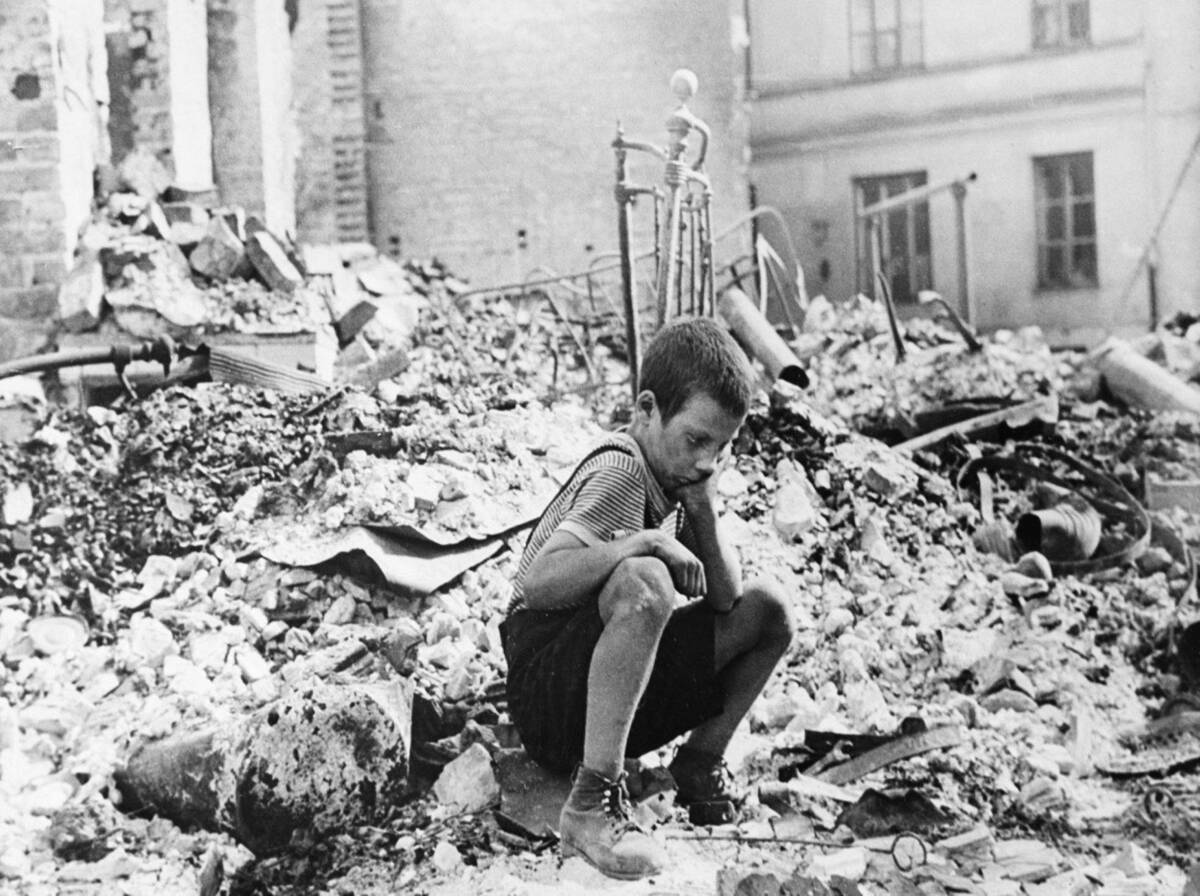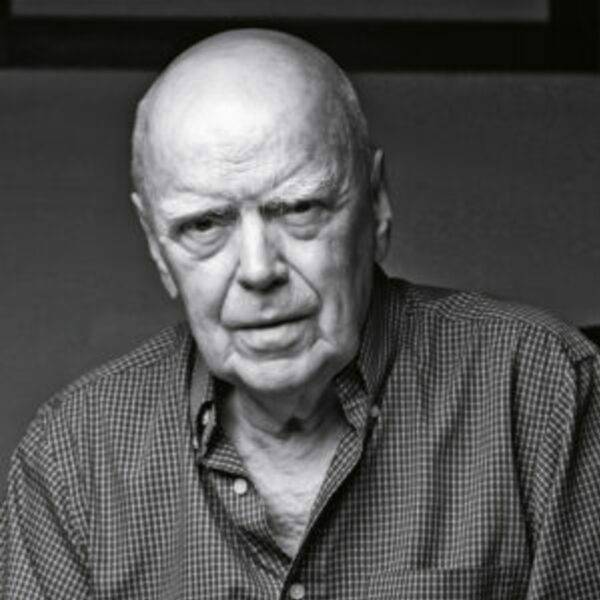The Diary Of Hans Frank [Der Tagebuch von Hans Frank] fell by coincidence into the hands of the Americans in May 1945. Before that, it had been preserved at the University Library in Heidelberg, where the American 7th Army had set up its center for documentation. From there, by a rather roundabout route, it arrived in Nuremberg, where Stanisław Piotrowski, a member of the Polish delegation to the International Tribunal, made an abstract of it. In this way, it became material evidence against Frank at his trial. If not for the Excerpts from the Diary of Hans Frank [Auszüge aus dem Tagebuch von Hans Frank] presented before the International Tribune in Nuremberg, the General Governor would most likely have escaped with his skin intact. For what was found in the Diary provided evidence sufficient to sentence him to death. You might even say that Frank plaited his own noose. For he might have destroyed his Diary or hidden it, but he did neither; rather—as he later so strangely boasted—he even handed it over to the Americans himself. As he wrote in his prison notes: “I handed over my wartime journal to them, voluntarily.” To inquire as to the whys and wherefores of that decision—was it recklessness or the hanged man’s considered decision—is not worth our trouble. In his “Introduction” to the Diary, Stanisław Piotrowski, who published it, included (in the 1957 edition) some extraordinarily interesting fragments from a few of Frank’s speeches, which the General Governor delivered in the summer of 1942 in Berlin, Vienna, Heidelberg, and Munich. Der Tagebuch (being not so much a journal in the classical sense of the term as rather a collection of speeches, protocols, and notes from the sittings and councils of the German rulers of the General Government) is chock-full of exhortations to murder. Of course, there’s nothing strange about that. When he was speaking in Warsaw or Kraków before the high command of the SS or the police, such was the nature of the beast, if one might put it that way: Frank had to call for murder—this was associated with his function; it arose from the very office he held. He was, if we might so express it, the chief in charge of the massacre, its commander; he had to measure up to his task—this too inclined him to such bloody exhortations. Such was his life. He couldn’t recoil from it—at least, I can see no possibility for withdrawal. Now, if these very bloodthirsty exhortations found in the Diary constituted for the Nuremberg Tribunal a hefty argument in favor of sentencing the General Governor to death (as I assume the case to have been), then his 1942 speeches might have been acknowledged by that same Tribunal as something along the order of extenuating circumstances. I don’t know whether or not Frank made reference to those speeches during his defense in Nuremberg, but doubtless he might have. Even today, so long after it all, they make one pause and consider just who was that General Governor of ours really. Of course, he was a criminal, a murderer, a thief—a pilfering fingersmith even, who took great pleasure in pillaging Jewish furs and Jewish jewelry. Nor did he hold Polish eggs and apples in contempt, as he sent great quantities of these back to Bavaria from the General Government to nourish his family there—something which was illegal, even according to the German laws of the day. Those addresses from 1942 set even these miserable thefts in a new, somewhat strange light. Indeed, all of Dr. Frank, the most illustrious German jurist of his generation, president of the German Legal Academy, as well as Reichsrechtsführer or Leader of the German Legal System (a title bestowed upon him by Hitler) appears to us in a somewhat different light. In the lecture that Frank delivered on 9 June at the University of Berlin, he spoke of law and freedom. “There has never been such a state as had no law or was set up in opposition to law. Such a thing is inconceivable,” Frank said. “As our experience of the history of the world teaches us, the state and the law constitute one whole. . . . You cannot rule a nation by force; a nation’s life is inconceivable without law. Force is merely a technical element which can never replace law. As a free nation, the German nation lives by its own law and cannot be bound into a national community by force.” Frank moves on from the problem of the state and the law to the problem of freedom: “In just the same way that a nation cannot live without law, it cannot live without freedom. Now, freedom also means the possibility of spiritual development. The goal of our national life is, and always has been, creative individuality. . . . I believe in sacred, eternal law.” Frank continues with his defense of sacred and eternal law in the following addresses delivered in June and July in Vienna, Munich, and Heidelberg. In the lecture that took place on 1 July at the Viennese Academy of Sciences, he said that the “ideals of the police state” that destroy the human person cannot become the ideals of National Socialism and cannot replace “ancient Germanic legal concepts.” “The law is also a human institution. The sense of humanity has lost some of its value; some people negate it entirely. I am of a different opinion.” The lecture he delivered at the University of Munich on 20 July was devoted to the independent judicature and also to the independence of the human person. “The independence of the judge is one of the most ancient Germanic cultural treasures. To stand in its defense is no manifestation of any liberal-democratic, Jewish-parliamentary decadent reactionism or anything of that ilk but a very Germanic characteristic. The existence of the individual in no way impinges upon the authority of the Reich, incarnate in the providential figure of the Führer.” In the lecture delivered on the next day, 21 July, in Heidelberg, the General Governor spoke out against the existence of the police state. “The police state should never exist at all. I reject it!”—and also against capital punishment: “Europe wishes to be humane. That means there is no need to always, and for every reason, decree a sentence of death. We wish to be humane. There exists no state that would be harmed by behaving humanely.” As can be seen, all of this was—and remains—quite valid. What were Frank’s intentions when he came out—and this, in 1942—in defense of “sacred law” and “Germanic legal concepts” (being, as one might surmise, the age-old creation of the Germanic tribal community)—this I cannot say. Perhaps some German historians, who busy themselves with the history of Germanic law and the history of the Third Reich, know something more on that topic. The Polish publisher of the Diary was of the opinion (and in this, he was certainly correct) that Frank was engaged in a certain type of political gamesmanship and that the speeches were some element in that game. But what that game, directed against Hitler’s closest collaborators, might lead to is hard to say. It doesn’t seem possible that Frank might have been counting on getting rid of Himmler and Bormann so that in this way he might find himself right next to the Führer, number two in the Reich. Whatever the case may be, even if it was just a political game (although, as I see it, there is something more to be found in these addresses, something that sheds light upon the whole German personality of those days, if one can put it like that—at one and the same time, we steal Polish eggs and realize the sacred laws of the Germanic tribe, securing our age-old Germanic identity, because the theft of eggs is actually the realization of those sacred laws), so, even if Frank was playing some sort of game, it ended for him—if not fatally, at least not very well. For when Hitler was presented with the strange addresses delivered by the Reichsrechtsführer, he is said to have been overcome with fury. He forbade Frank from public appearances at universities and deprived him of various positions of honor. From then on, he was permitted to appear in public only in his role as General Governor. Bormann and Himmler had an influence on this decision of the Führer’s, doubtlessly intriguing so as to clip Frank’s wings and limit his influence. In the context of political games, it all ended in August 1942 with Frank submitting his resignation from the post of General Governor, which Hitler, however, did not accept. To those passionate addresses of Frank’s from the summer months of 1942 and to his passionate defense of the sacredness of German law, it is worth adding what the Diary has to say about all that. This is what we learn there: during an address in Kraków on 30 May 1940, at a meeting devoted to police matters (“Polizei-Sitzung am Donnerstag, dem 30.Mai 1940. Beginn der Sitzung 10.20”), the General Governor harangued his collaborators on the necessity of “putting an end already to the mob of seditionist politicians of resistance” and “coming to terms with the Polish banditry that we’ve inherited.” He said: “I freely admit that several thousand Poles, above all, from the spiritual and intellectual leadership of Poland, will pay with their lives. . . . Gentlemen, we are not murderers, not at all. Now, this is a terrible task for the policeman and SS man who, on the basis of this edict, is by office or profession duty-bound to carry out such executions. The signing of hundreds of death sentences here is but a flick of the pen for us. But it is a terrible burden to oblige Germans, honest German soldiers and their comrades, to carry them out. . . . Every officer of the police and the SS, who has the difficult duty of performing these executions, must be 100% convinced that he is acting as the executor of a sentence established by the law of the German nation.” “Meine Herren, wir sind keine Mörder”—how are we to understand that? A murderer is giving murderers an order to murder in expedited fashion (“in beschleunigtem Tempo Schluss zu machen”) and declaring to them that they are not murderers at all. Of course, he’s a murderer, and yet he’s not an idiot after all; this is no cretin, no German moron speaking; on the contrary: this is a thinking man, a man of intellect, educated, a renowned jurist, a specialist in the explication of German law, including its sacredness—so, how are we to comprehend this? We are not murderers—is this just a propaganda slogan that occurred to him, something intended to make murdering easier for murderers, to convince them or encourage them to murder? It would be naive to think so. For, after all, the PolizeiSitzung was a meeting of the high command of the police and the SS—accomplished experts all; it was a closed meeting, where there was no reason to propagate something that was (I’m thinking of murder here) sufficiently well-propagated. Frank had no reason there to convince or encourage anybody to do anything. In stating that these colleagues of his, SS and policemen, gathered at Wawel, were not murderers all the while they murdered, was nothing but an acknowledgment of a certain factual state of things. “Wir sind keine Mörder” was something well rooted in the German psyche. Frank’s SS men and policemen would be murderers if they were murdering in accordance with the laws of a police state. But Frank would not even consider such a thing, knowing that if the Reich was to endure, it could not be based on summary or interim law; no, its laws must be eternal and sacred. But if that murdering was founded on age-old Germanic law (if, to take the matter in hand from a different angle, it was justified by the age-old interests of the German nation), then it wasn’t murder; indeed, it had nothing in common with murder at all; it was the implementation of justice. Or, perhaps it would be better to look at it thus—it was the introduction of justice, age-old and founded upon the conviction that Europe (and even the whole world) ought to be governed by the Germans, who were the only ones capable of such a thing. So those who do not agree with this must (oh, horrible necessity!) be exterminated. And so, although murder (on the streets of Warsaw) was an everyday occurrence in the forties—that too, like all other manifestations of age-old law, was something sacred and even festive. For this reason, in that speech that Frank delivered at that May Polizei-Sitzung (and it was an important speech—it must be considered as such), the phrase “wir sind keine Mörder” was attached to the phrase expressing that every SS chief who sentenced a person to death and carried out that execution “must be 100% convinced that he is acting as the executor of a sentence established by the law of the German nation” (my emphasis).This wasn’t an easy thing to do at all (that murdering, which in its volume lost its murderous character), for those who organized the executions and participated in them took upon themselves a great and heavy duty—bringing into existence the law of the German nation, shaping life according to that law. “Die haute Pflicht.” And also, “eine furchtbare Aufgabe.” A heavy duty, a horrible task. As can be seen, there was even something pitiable in all this. But those to be pitied—according to Frank—were not those who were killed, but those who did the killing—courageously realizing German national law. It is for this reason that, in this speech, Frank expresses his great concern for the health of the soldiers who were to carry out the executions. As he saw it, only the best and healthiest soldiers would be capable of such a thing. “For this reason, I am very grateful to party comrade Siebert for publishing the instructions, which enjoin upon the organs of the police the duty of taking into consideration the physical condition of the people who are to be entrusted with these executions. Gentlemen, I beg you to respect these instructions as far as possible and in all circumstances.” These words might be understood in such a way, too, to suggest that any person who lacks the proper physical predispositions for this task is incapable of it, not only because he might break down and be incapable of carrying it out but also because he is unworthy, he does not have such elevated moral stature as would enable him to bring the law of the nation into existence. In one of the few photographs that record a street execution in Warsaw—actually, the photo was taken after the execution had been carried out—we see four men, prisoners, most likely, tossing the corpses onto the flatbed of a truck. The photograph was taken in the autumn of 1943 (perhaps in secret, from some window, at the risk of the photographer’s own life), probably somewhere on Wawelska St., somewhere near Grójecka St.—but there can be no absolute certainty about that. It’s hard to make out any details. No faces are clearly visible; one sees only the wretched clothes they wear, short sports coats. One of the men in the cleanup detail is wearing a cap; the rest are bareheaded. The one in the cap is not wearing a coat but is in shirtsleeves. So, if this was taking place in the fall, it was most likely early fall or the end of summer. Four men are lifting a corpse by the arms and legs. As one might well assume, they’re about to swing it upwards; in a moment, the limp, broken body will fly up into the air to land a moment later on the flatbed—which we see from the side, something that allows us to judge that, at least in the case of executions, not the tailgate but the side-walls of the truck were lowered. This way, it’d be easier to unload and reload them. The loading here has just begun. No one is yet sprawled on the truck’s flatbed. Right next to the four men holding the body, some German officer, probably in a Luftwaffe uniform, is passing by at a sprightly pace—you can tell because he’s taking long strides. Then again, his uniform is a bit too light-colored to be Luftwaffe; maybe he’s from some other branch of the service. The officer is not looking at the four men who are tossing corpses onto the truck, nor does he glance at the man being tossed. He’s looking straight in front of him. He has some papers in his hand. Most likely, he’s on his way to deliver them; he’s got some purpose, and he gives one the impression (as I understand it) of being somewhat upset, in a hurry; maybe what he’s got to do is something urgent; maybe he has to deliver a critical command. It seems as if this scene of tossing corpses didn’t interest him at all. He passes by indifferently as if what was taking place right next to him was not worth his notice. Or something that—seen so many times already—no longer holds any interest for him. If we accept Frank’s point of view, this fellow from the Luftwaffe, bearing his papers somewhere, was, there on Wawelska St. in the summer or fall of 1943, to be pitied.
Editorial Note: This is an excerpt from Kinderszenen (pp. 25–32) reprinted here with the generous permission of Slant Books, ALL RIGHTS RESERVED.


